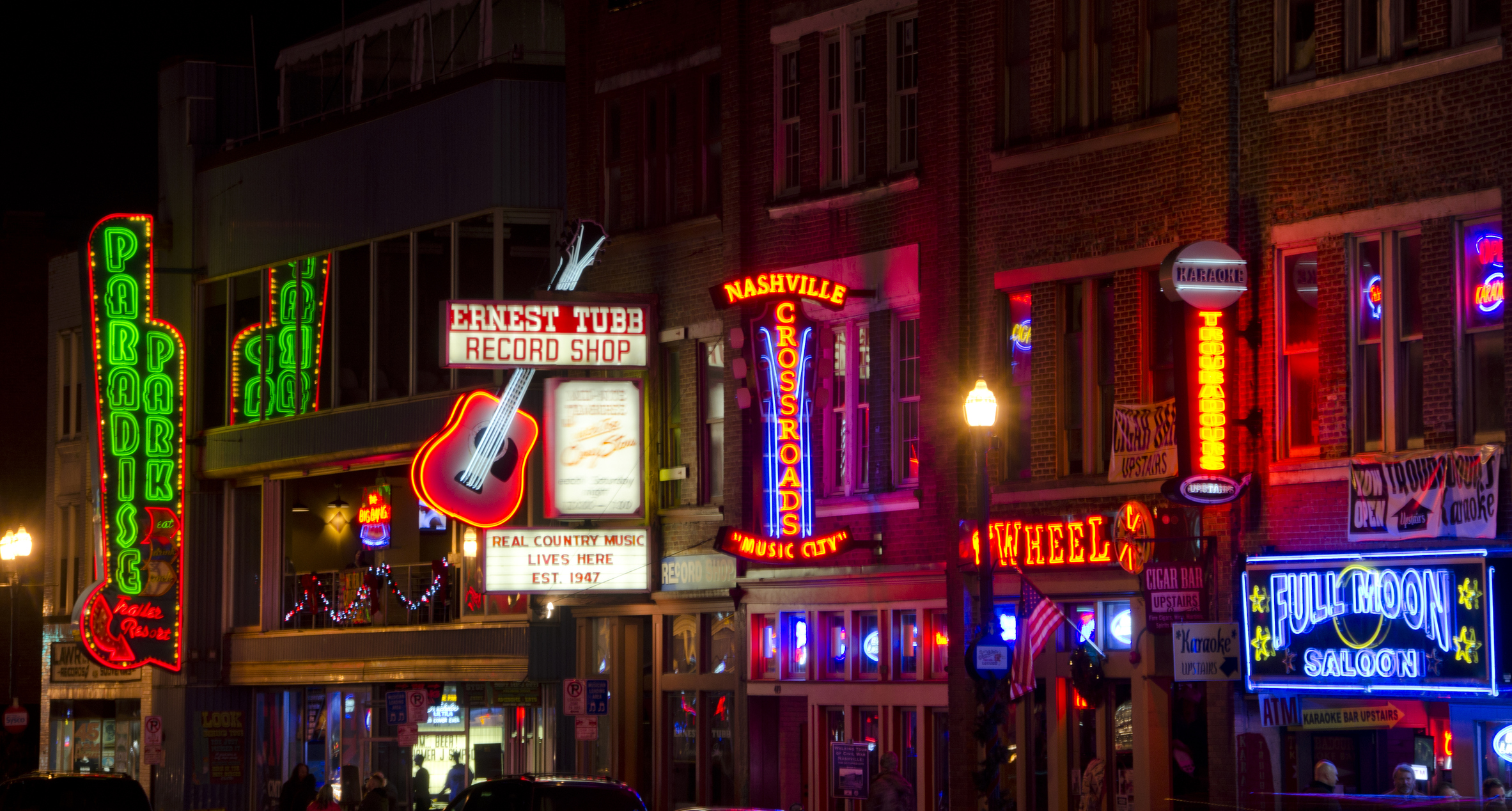
14 Oct What Nashville Teaches Us About Sticking to Your Community’s True DNA
You may have watched Ken Burns’ Country Music documentary series in the past few weeks on PBS. If you haven’t already watched it, order it On Demand. It’s a fascinating, well-researched story of Americana in true Ken Burns form. If you don’t like country music, you probably will after watching it. In Episode 7, you’ll also learn a powerful lesson in place branding.
The episode chronicles how in the 1970s and 1980s, as country music was coming off of a peak in the 1960s (when Johnny Cash, Loretta Lynn, Tammy Wynette et al hit super stardom), the powers that be in Nashville pondered building an identity beyond country music. As Hee Haw and its strong stereotypes took hold, many felt the city was being pigeon-holed as a hillbilly town and that this could limit growth. “We are so much more than country music!” was the common refrain. It seems like a no-brainer now, but Music City USA (now evolved to Music City) may not have survived as a branding moniker.
Wisely, the city examined its DNA – the inimitable qualities and driving spirit that define it alone – before making a brand move away from music. Going deeper than music, they identified that Nashville is, at heart, a creative community. Music, absolutely, but culture, cuisine, intellectual pursuit, innovation and ingenuity also all defined the city’s creativity. Once Nashville viewed itself on those terms, it had permission to use country music, and ultimately music of any form, as its invitation to experience the creativity of the city.
Now, with music as its primary calling but through the larger lens of creativity, Nashville’s brand has boomed. The city leaders who once feared a hillbilly reputation are now justifiably proud of its astounding economic development. Creativity has fueled growth in its core industries. Most notably, health care. Nashville is home to seventeen publicly traded health care companies employing 400,000 and producing global revenues of more than $70 billion. Advanced manufacturing, supply chain management, corporate operations and, of course, music and entertainment, round out its thriving target industry clusters.
And down on Music Row tourism is going pretty well, too. Nashville has become one of America’s hottest destinations since the city has doubled down on its Music City brand. Many forms of fun and music thrive in Nashville. For instance, they have a beautiful symphony hall for classical music. Deana Ivey, CMO of the Nashville Convention & Visitors Corporation explains the many links to the DNA:
“In Nashville’s case, the Music City brand has allowed us to showcase other areas/people of creativity within the city. Restaurants, chefs, fashion designers, boutique shops, visual artists, art galleries, makers, and entrepreneurs all drive home the message of creativity. Music laid the foundation for the creative spirit in Nashville.
Ultimately, it is the creativity behind the music and the space between the notes that allowed everyone to embrace Music City.
So what might your community be pigeon holed for that many think they want to get away from? A key employer? A piece of history? A military base? A famous tourist attraction? If your strategic plan can’t link growth to it, it’s fair to distance from that association or widen your story. But be careful how you distance. Don’t throw your long-term asset and its connections out. Rather, look beneath it and ask yourself “what has it made of us that is pervasive and authentically ours?” Take that answer and shape it into something fresh and relevant for today. The odds are, your association has driven a powerfully unique DNA that you can shape into your future brand story. In the process, you’ll broaden your story while preserving and leveraging the critical equity that your association has already built for you. Sure, being the home of country music is a pretty meaty morsel to work with, but odds are your DNA can be built on just as meaningfully.
Who knew Ken Burns could also tell a pretty good story about place branding?
